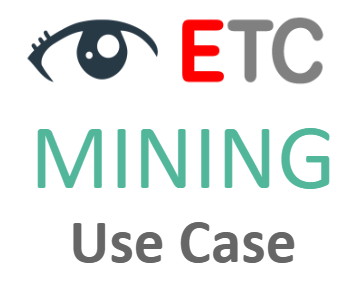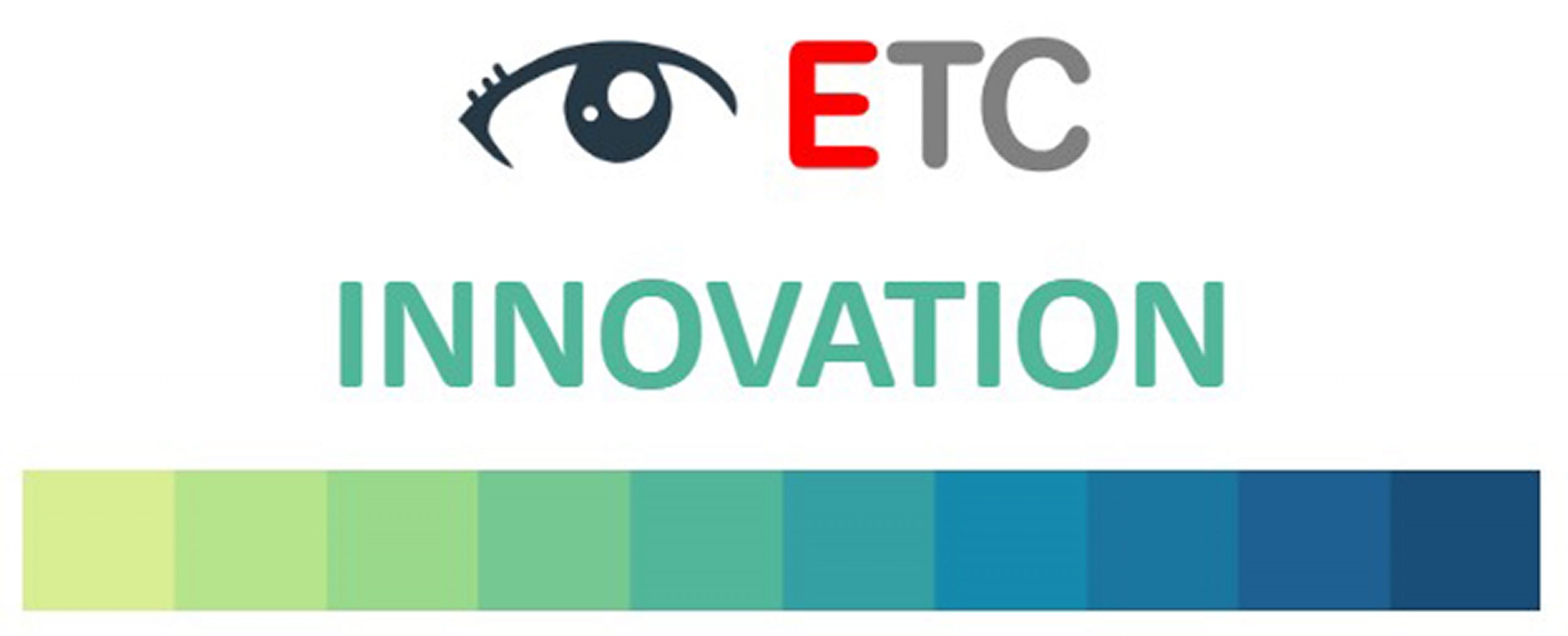
ETC Mining Industry – Use Case
The mining industry is an important sector of the global economy, responsible for extracting and processing a wide range of mineral resources essential for various industries and human needs. However, it is also a complex and challenging industry, facing various critical issues that must be addressed to achieve sustainable and responsible operations.
The main critical issues facing the mining industry and their potential solutions.
ETC AI – Value Proposition for the Mining Industry.
Dramatically improve Miners, Employees’ and Candidates’ performance & evaluations, avoiding Bias.
Scientifically Diagnose Mining Critical Issues and Corporate Climate through the EMOTIONAL Fingerprint™ supported by AI innovative technology.
Mining Organizations and related entities worldwide needed to improve innovation and engagement, plus lower miners’ stress and burnout.

Mining Industry – Critical Issues
Environmental Impacts
One of the most significant issues facing the mining industry is its environmental impact. Mining activities can significantly affect water, air, and soil quality, biodiversity, and the health of local communities. Some of the most pressing environmental issues include water scarcity, water pollution, soil degradation, and the release of greenhouse gases. To address these issues, mining companies must adopt sustainable practices that minimize environmental impacts, such as reducing water use and pollution, implementing land reclamation and rehabilitation programs, and using renewable energy sources.
Health and Safety
Mining is also a hazardous occupation, with significant risks to worker health and safety. Mining operations can expose workers to various occupational hazards, including noise, dust, chemicals, and physical hazards, such as cave-ins, explosions, and fires. Mining companies must implement robust health and safety programs that adhere to international standards and regulations to ensure worker safety. This includes providing adequate training and personal protective equipment and ensuring that all equipment and machinery are maintained and regularly inspected.
Community Relations
Mining operations can significantly impact the communities where they are located. Mining companies must engage with local communities and stakeholders to address their concerns and needs. This includes ensuring that the mining operation respects the cultural and social values of the community and providing economic opportunities and benefits, such as job creation and infrastructure development. Additionally, mining companies should contribute to community development programs, such as education and healthcare.
Resource Management
Mining is a finite resource, and the depletion of mineral resources can have significant economic and social impacts. To ensure the responsible and sustainable use of mineral resources, mining companies must adopt responsible resource management practices, such as using efficient technologies, optimizing production processes, and implementing recycling and waste reduction strategies.
Ethical and Social Responsibility
Mining operations must adhere to ethical and social responsibility standards to ensure that their activities do not negatively impact human rights, including the rights of indigenous people and other vulnerable communities. This includes ensuring that mining activities do not contribute to forced labor, child labor, or human rights abuses and that mining activities respect local communities’ land rights and cultural heritage.
Asset Protection & Security
Asset Protection and Security are of utmost importance in the mining industry to prevent theft and unauthorized access, ensure the safety of employees and contractors, prevent damage to equipment and machinery, and comply with regulatory requirements. The mining industry must invest in effective security measures to protect its assets and ensure mining operations’ smooth and safe operation. By doing so, mining companies can ensure a sustainable future for the industry.
In conclusion, the mining industry faces many critical issues that must be addressed to ensure its sustainability and responsible operations. This requires a concerted effort from all stakeholders, including mining companies, governments, communities, and civil society organizations. By adopting sustainable mining practices, promoting worker health and safety, engaging with local communities, responsibly managing mineral resources, and adhering to ethical and social responsibility standards, the mining industry can contribute to sustainable economic development while minimizing its environmental and social impact.

ETC Solutions help to solve Mining critical issues!

Accumulating scientific results over time, you can diagnose and measure the evolution of P&L issues you want to improve.
ETC Innovation as a mindset, not a project!
The exact questions and extracting & accumulating scientific results over time, you can diagnose and measure the evolution of Innovation.


Scientifically Diagnose Critical Issues and Corporate Climate through the EMOTIONAL Fingerprint™ supported by volunteers´ interviews.
Improve Candidates’ hiring evaluation and selection, avoiding Bias and potential risks.


Mining Critical Issues Samples
Human Resources
Gender Equality & Sexual Harassment
Discrimination & Diversity
Bullying & Harassment
Performance Evaluation & Retention
Promotions & Succession Planning
Training & Development
Compensation & Benefits
Absenteeism
Security & Compliance
Bribes & Corruption
Suspect Fraud/Theft by Employees
Suspect Fraud/Theft by Contractors
Data Security & Protection
Waste of Resources
Criminal Activities
Confidentiality Issues
Misbehavior & Aggressive Attitudes
Innovation
Free Thinking & Ideas Generation
Leadership Vision
Evolving Landscape – Competition & Threats
Assess Capabilities – Global R&D
Culture Evaluation & Multinational Mix
Comfort Zone & Growth
Sales, Marketing & Profits
Customer Satisfaction & Retention
Market Trends (Products/Services)
Training & Development
Technical Support
High-Value Customer (Guarantees)
Salesforce Underperformance & Engagement
Environmental Impacts
Mining has been an integral part of human civilization for centuries. Extracting valuable minerals from the earth has played a significant role in developing modern economies. However, the mining industry has also had significant environmental impacts, which cannot be ignored. This essay will discuss some environmental impacts of the mining industry.
One of the primary environmental impacts of the mining industry is the destruction of natural habitats. The mining process often involves removing topsoil and vegetation, which can lead to erosion and the destruction of ecosystems. This can have serious consequences for the animals and plants that depend on those habitats for survival.
In addition to habitat destruction, mining can also lead to soil and water contamination. Using chemicals such as cyanide and mercury in the extraction process can result in the pollution of waterways and soil. These pollutants can have long-term impacts on the health of local ecosystems, including the loss of biodiversity and the extinction of species.
Mining can also lead to air pollution, which can have serious health impacts on nearby communities. Dust and particulate matter from mining activities can cause respiratory problems and other health issues. Additionally, the emissions of greenhouse gases from mining activities, such as methane and carbon dioxide, can contribute to global climate change.
Another significant environmental impact of the mining industry is the generation of waste. Mining generates a large amount of waste rock and tailings, which can contain hazardous chemicals and other pollutants. This waste can have long-term impacts on the environment, including the pollution of waterways and soil.
Finally, the mining industry can impact local communities socially and culturally. The displacement of communities and the destruction of cultural heritage sites can have serious social and cultural consequences. Additionally, exploiting workers and communities in developing countries can have significant ethical implications.
In conclusion, the mining industry has significant environmental impacts that cannot be ignored. The destruction of natural habitats, soil and water contamination, air pollution, waste generation, and social and cultural impacts are just a few of the many challenges the mining industry faces. The industry must minimize these impacts by implementing environmentally responsible practices, reducing waste generation, and engaging with local communities to address their concerns. By doing so, the mining industry can help mitigate the negative environmental impacts of mining and ensure a sustainable future for all.

Health and Safety in the mining industry
The mining industry is one of the most dangerous industries in the world, with a high number of accidents and fatalities reported yearly. The industry involves working in hazardous environments with heavy machinery and dangerous chemicals, making it essential to implement effective health and safety practices. This essay will discuss the importance of health and safety in the mining industry.
One of the primary reasons for implementing effective health and safety practices in the mining industry is to protect the health and well-being of workers. The working conditions in mines can be hazardous, with the risk of accidents and injuries such as falls, explosions, and exposure to harmful chemicals. Workers can also experience long-term health problems from exposure to dust, noise, and other hazards. By implementing effective health and safety practices, workers can be protected from these hazards and reduce the risk of injuries and illnesses.
Another important reason for implementing health and safety practices is to prevent fatalities. The mining industry has a high number of fatalities reported yearly, making it essential to implement measures to prevent these tragic events. This includes implementing strict safety protocols, training workers on proper safety procedures, and providing them with protective equipment such as helmets, gloves, and respiratory masks.
Effective health and safety practices can also improve productivity and efficiency in the mining industry. When workers feel safe and protected in their working environment, they are more likely to be productive and efficient, resulting in increased profits for the company. Effective health and safety practices can also reduce downtime caused by accidents and injuries, leading to improved operational efficiency.
Health and safety practices in the mining industry can also positively impact the environment. The use of harmful chemicals and explosives in mining can lead to environmental damage, including water pollution and air pollution. By implementing effective health and safety practices, the industry can reduce the use of these harmful substances and minimize their impact on the environment.
In conclusion, the mining industry’s health and safety practices are crucial to protect workers, prevent fatalities, improve productivity and efficiency, and minimize environmental impact. The industry must invest in training workers on proper safety procedures, providing protective equipment, and implementing strict safety protocols to reduce the risk of accidents and injuries. By doing so, the mining industry can ensure a safe and healthy working environment for its workers and contribute to a sustainable future for all.

Ethical and Social Responsibility
The mining industry significantly impacts local communities, including the displacement of communities, the destruction of cultural heritage sites, and changes in the local environment. For this reason, mining companies need to establish and maintain positive relationships with local communities. This essay will discuss the importance of community relations in the mining industry.
One of the primary reasons for establishing positive community relations is to build trust and respect between the mining company and local communities. The mining industry has a history of negative impacts on local communities, making it essential for companies to demonstrate their commitment to the well-being of these communities. Mining companies can build trust and respect, improving local communities’ relations and cooperation.
Another important reason for positive community relations is to mitigate social and cultural impacts on local communities. The displacement of communities and the destruction of cultural heritage sites can have serious social and cultural consequences. By engaging with local communities, mining companies can better understand their needs and concerns and work to minimize the negative impacts of mining on local communities.
Positive community relations can also have economic benefits for the mining company. Mining companies can create economic opportunities for local businesses, suppliers, and workers by engaging with local communities. This can create a more sustainable and diversified local economy, which can benefit both the mining company and local communities.
Effective community relations can also minimize environmental impacts. By engaging with local communities, mining companies can better understand environmental concerns and work to minimize the negative impacts of mining on the environment. This can include implementing environmentally responsible practices, reducing waste generation, and engaging in reclamation activities.
In conclusion, positive community relations are essential in the mining industry to build trust and respect with local communities, mitigate social and cultural impacts, create economic opportunities, and minimize environmental impacts. The industry must invest in engaging with local communities, understanding their needs and concerns, and working to minimize the negative impacts of mining on local communities. By doing so, the mining industry can ensure a sustainable future for all.

Impacts over the environment, local communities, and society.
Therefore, ethical and social responsibility is of utmost importance in the mining industry. This essay will discuss the importance of ethics and social responsibility in the mining industry.
One of the primary reasons for ethical and social responsibility in the mining industry is to ensure that the industry operates fairly, justly, and equitably. The industry should treat all stakeholders, including employees, communities, and the environment, respectfully and fairly. This includes ensuring that workers are treated fairly and paid a living wage, that local communities are engaged and consulted, and that environmental impacts are minimized.
Another important reason for ethical and social responsibility in the mining industry is to promote transparency and accountability. The mining industry has a history of operating in secrecy and with limited transparency, leading to mistrust and suspicion among stakeholders. By promoting transparency and accountability, the industry can build trust and respect with stakeholders and demonstrate its commitment to operating ethically and responsibly.
Effective ethical and social responsibility practices can also minimize negative impacts on the environment and local communities. The mining industry significantly impacts the environment, including the destruction of ecosystems, water pollution, and air pollution. By implementing environmentally responsible practices, mining companies can minimize the negative impacts on the environment. Similarly, mining companies can work to minimize negative social impacts by engaging with local communities and understanding their needs and concerns.
Social responsibility in the mining industry also involves contributing to the development and well-being of society. This includes supporting local communities by providing infrastructure, education, and healthcare and creating economic opportunities for local people. By doing so, mining companies can contribute to the development and well-being of society.
In conclusion, ethical and social responsibility is crucial in the mining industry to ensure that the industry operates in a way that is fair, just, and equitable. The industry must strive to promote transparency and accountability, minimize negative impacts on the environment and local communities, and contribute to the development and well-being of society as a whole. By doing so, the mining industry can ensure a sustainable future for all.

Asset Protection and Security in the Mining industry
The mining industry is known for its high-value assets, such as equipment, machinery, and precious metals. As a result, asset protection and security are of utmost importance in the mining industry.
One of the primary reasons for asset protection and security in the mining industry is to prevent theft and unauthorized access to the site. The mining industry is vulnerable to theft and unauthorized access due to the high value of its assets, making it a target for criminals. By implementing effective security measures, mining companies can protect their assets and prevent unauthorized access to the site.

